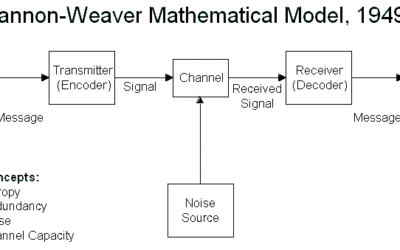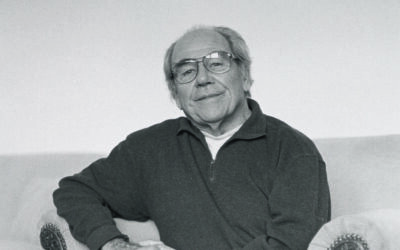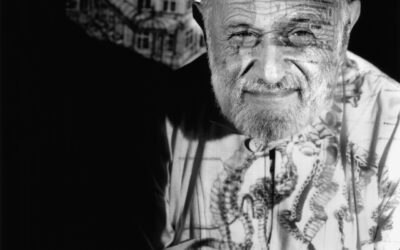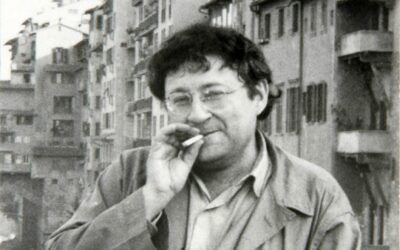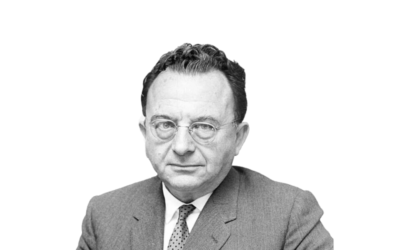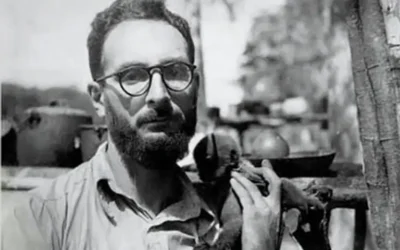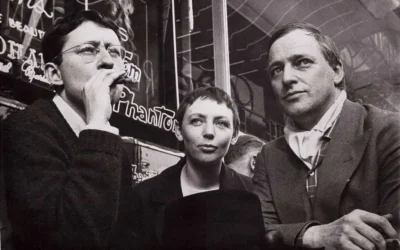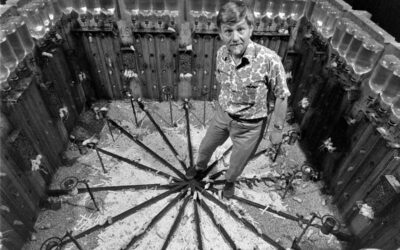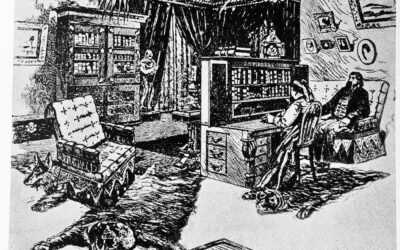I. What is the Shannon Weaver Model Claude Shannon (1916-2001) and Warren Weaver (1894-1978) were two American mathematicians and engineers whose collaborative work laid the foundation for modern information theory. Their groundbreaking research in the mid-20th century revolutionized our understanding of communication, paving the way for the digital age and profoundly influencing fields ranging from computer science and cryptography to linguistics and psychology. This paper explores the lives and ideas of Claude...
Jean Baudrillard: Philosopher of Hyperreality and Simulation
Simulacra and Simulation "We are in a logic of simulation, which no longer has anything to do with a logic of facts and an order of reason. Simulation is characterized by a precession of the model, of all the models based on the merest fact - the models come first, their circulation, orbital like that of the bomb, constitutes the genuine magnetic field of the event. The facts no longer have a specific trajectory, they are born at the intersection of models, a single fact can be engendered by all the models at...
Vilém Flusser: Philosopher of Communication and Media Theory
Vilém Flusser: Philosopher of Simulacra I. Who was Vilém Flusser Vilém Flusser (1920-1991) was a Czech-born philosopher, writer, and media theorist who made significant contributions to the understanding of communication, media, and technology in the late 20th century. Flusser's work, which spans across multiple languages and disciplines, offers a unique perspective on the ways in which media shape human consciousness and culture. His ideas about the impact of photography, digital media, and technical images on...
The Revolutionary Life and Ideas of Guy Debord: Exploring the Situationist Critique of Modern Society
Guy Debord: Exploring the Situationist Critique of Modern Society I. Who was Guy Debord Guy Debord (1931-1994) was a French Marxist theorist, philosopher, filmmaker, and founding member of the Situationist International, a radical avant-garde movement that sought to transform everyday life through the fusion of art and politics. Debord's groundbreaking book "The Society of the Spectacle" (1967) presented a scathing critique of modern capitalist society, arguing that authentic social life had been replaced with...
Erich Fromm: Legacy and Relevance to Depth Psychology
1. Who Was Erich Fromm? Erich Fromm (1900-1980) was a renowned psychoanalyst, sociologist, and humanistic philosopher who made significant contributions to our understanding of the human condition in the modern world. Born in Frankfurt, Germany, Fromm was deeply influenced by the tumultuous events of the 20th century, including the rise of fascism, the Holocaust, and the Cold War. These experiences shaped his lifelong commitment to exploring the psychosocial roots of authoritarianism, alienation, and the...
Marcel Mauss: The Gift and the Foundations of Social Solidarity
1. Who Was Marcel Mauss? Marcel Mauss (1872-1950) was a pioneering French sociologist and anthropologist, best known for his influential essay "The Gift" (1925) and his role in shaping the development of social theory in the early 20th century. A nephew and close collaborator of Émile Durkheim, Mauss played a key role in the establishment of sociology and anthropology as distinct academic disciplines in France, and his work had a profound impact on later thinkers such as Claude Lévi-Strauss, Pierre Bourdieu, and...
The Situationist International: Subversive Tricksters of Everyday Life
What were the Situationists International The Situationist International (SI) was a radical avant-garde movement that emerged in the 1950s and reached its peak of influence in the late 1960s, around the time of the May 1968 uprising in France. Founded on the idea of fusing art, politics, and everyday life into a revolutionary praxis, the SI sought to overthrow the alienating and oppressive structures of modern capitalist society. At the heart of their critique was the concept of the spectacle, developed by Guy...
The Universe 25 Experiment and the Psychological Stress of Modern Civilization
What Was The Universe 25 Experiment? In the 1970s, ethologist John B. Calhoun conducted a famous experiment called Universe 25. In the study, a colony of mice was placed in a utopian enclosure called a "mouse paradise" with unlimited access to food, water, and nesting materials. The colony rapidly expanded but then exhibited increasingly dysfunctional and abnormal behaviors as overcrowding intensified. Many withdrew from social interaction, some became aggressive, mothers neglected their young, and eventually the...
The Psychology of Advertising
Advertising has long drawn upon psychology to influence consumers and shape their behavior. As documentary filmmaker Adam Curtis explores, some of the earliest uses of psychological theories in advertising and public relations can be traced back to Sigmund Freud's nephew Edward Bernays in the early 20th century. Bernays and the Application of Freudian Ideas Bernays was one of the first to apply Freudian ideas of the unconscious mind to advertising and public manipulation. In one famous case study, he helped the...
Helena Blavatsky and the Theosophical Legacy: Charlatanry, Wisdom, and the Unconscious Mind
Who was Helena Blavatsy? Helena Petrovna Blavatsky, the enigmatic and controversial founder of the Theosophical Society, left an indelible mark on the spiritual and intellectual landscape of the late 19th and early 20th centuries. Her life and work have been the subject of fascination, admiration, and criticism, making her one of the most polarizing figures in the history of Western esotericism. This essay explores Blavatsky's legacy, the key ideas of Theosophy, its similarities to other esoteric and...

